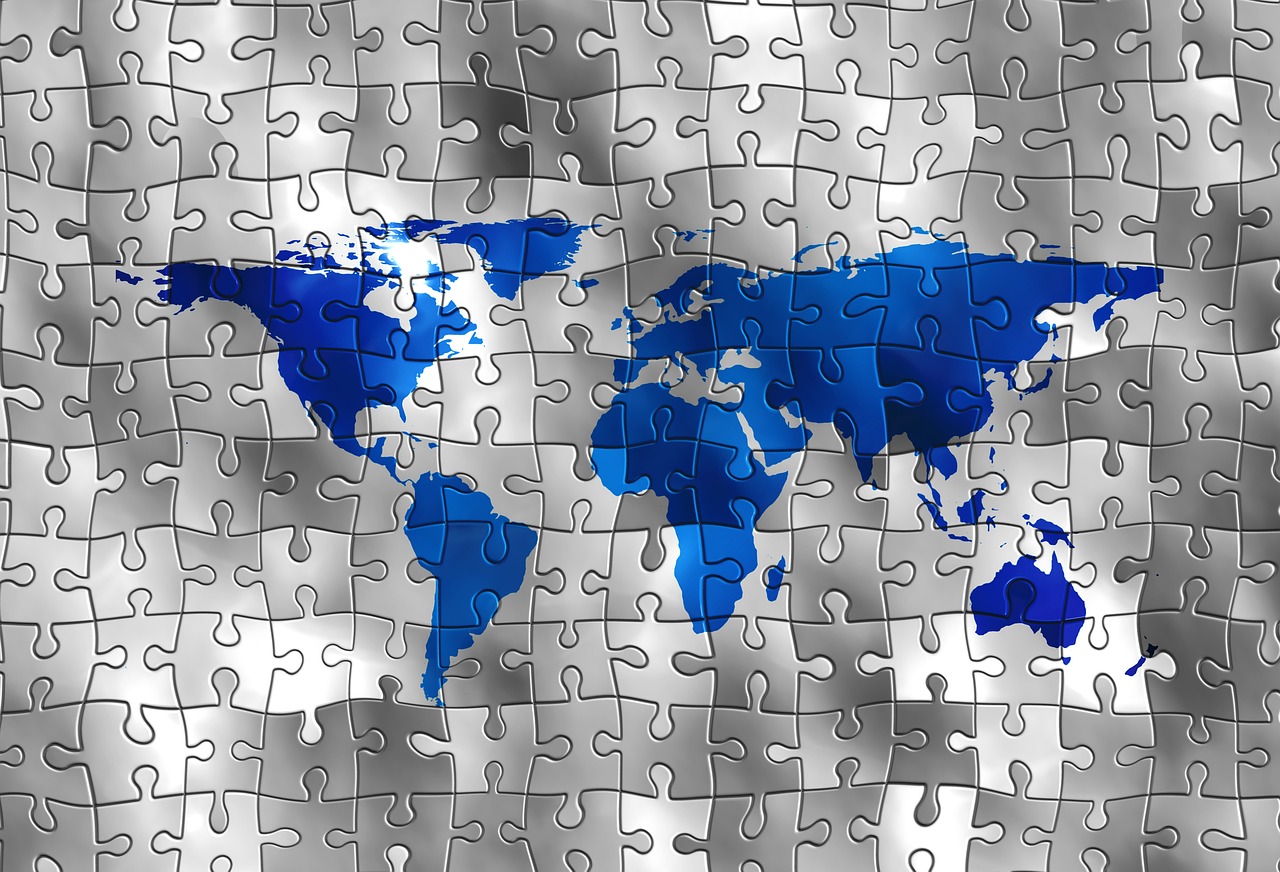The Impact of Globalization on World Cultures
Globalization has significantly shaped the cultural landscape of our world, bringing both challenges and opportunities for societies around the globe. As borders blur and communication technologies advance, the exchange of ideas, traditions, and values has become more fluid than ever before. This interconnectedness has led to a complex interplay of cultural influences, impacting the diversity, traditions, languages, and identities of different cultures worldwide.
One of the key consequences of globalization is the phenomenon of cultural homogenization. This process occurs when societies adopt more dominant global trends, leading to the loss of unique cultural elements. Traditional practices, languages, and values can be overshadowed by more widespread cultural norms, potentially eroding the rich tapestry of diversity that defines our world.
However, globalization also gives rise to cultural hybridization, where the blending of different cultural elements results in the emergence of new and dynamic forms of expression. As cultures interact and influence each other in a globalized world, innovative cultural practices and identities can evolve, enriching the global cultural landscape.
Language shift and endangerment are significant issues that arise in the wake of globalization. The dominance of global languages can contribute to the decline of indigenous languages and dialects, putting linguistic diversity at risk. Efforts to preserve and revitalize endangered languages play a crucial role in maintaining the cultural heritage of communities facing linguistic challenges.
Globalization also plays a pivotal role in shaping individual and collective identities. As people navigate the complexities of a globalized world, their sense of self is influenced by both their cultural heritage and the broader global community. This interplay of local and global forces shapes how individuals perceive their identities and their place in the world.
The issue of cultural appropriation has become increasingly prominent in a globalized context. Cultural elements are often borrowed or adopted without proper acknowledgment or respect, leading to debates about ownership, representation, and cultural integrity. Navigating the complexities of cultural exchange in a globalized world requires sensitivity and awareness of the power dynamics at play.
Despite the challenges posed by globalization, there are instances where it has sparked a revival of traditional practices. The interconnected nature of the modern world has led to a renewed interest in preserving and celebrating cultural heritage, fueling efforts to revitalize traditional art forms, rituals, and customs.
Globalization has also transformed the landscape of media and entertainment, influencing the production, distribution, and consumption of cultural content on a global scale. The proliferation of digital platforms and communication networks has facilitated the sharing of diverse cultural narratives and representations, shaping how stories are told and consumed around the world.
However, the preservation of cultural heritage faces significant challenges in the face of globalization. Communities grapple with issues of cultural commodification, exploitation, and erasure as they seek to safeguard their traditions and practices in a rapidly changing world. Balancing the forces of globalization with the imperative to preserve cultural diversity requires thoughtful and proactive measures.

Cultural Homogenization
Exploring how globalization influences the diversity, traditions, languages, and identities of different cultures worldwide, and the challenges and opportunities it presents for cultural exchange and preservation.
Cultural homogenization is a phenomenon where globalization can lead to the loss of unique cultural elements as societies adopt more dominant global trends. This process can have a significant impact on traditional practices, languages, and values that have been passed down through generations. Imagine a colorful tapestry made up of various threads representing different cultures. When one dominant color starts to overshadow the others, the tapestry loses its intricate patterns and vibrant diversity.
Globalization often brings with it a wave of popular culture that permeates different societies, leading to the erosion of local traditions and customs. It's like a powerful wave crashing onto the shores of cultural diversity, smoothing out the distinct features that once made each culture unique. As McDonald's golden arches and Hollywood blockbusters become ubiquitous symbols worldwide, the line between what is truly local and what is globally popular becomes increasingly blurred.
In the face of cultural homogenization, communities may find themselves grappling with the challenge of preserving their heritage while also embracing the benefits of global interconnectedness. It raises questions about the balance between celebrating diversity and participating in the global exchange of ideas and values. How can societies maintain their cultural identity in a world where uniformity seems to be the norm?
While cultural homogenization poses threats to the preservation of unique cultural elements, it also opens up opportunities for dialogue and understanding between different cultures. By recognizing the impact of globalization on cultural diversity, communities can actively work towards safeguarding their traditions and values while engaging with the broader global community in meaningful ways.
1. How does globalization impact cultural diversity?
2. What are the challenges faced by communities in preserving their cultural heritage?
3. What role does cultural appropriation play in a globalized world?
4. How can globalization contribute to the revival of traditional practices?

Cultural Hybridization
Exploring how globalization influences the diversity, traditions, languages, and identities of different cultures worldwide, and the challenges and opportunities it presents for cultural exchange and preservation.
Cultural hybridization is a fascinating process that occurs when different cultures interact and blend, giving rise to new and unique cultural expressions. It's like a cultural fusion cuisine, where ingredients from various culinary traditions come together to create a flavorful dish that is greater than the sum of its parts. In a globalized world, cultural hybridization is increasingly common as people from diverse backgrounds come into contact through travel, trade, and digital communication.
This blending of cultures can result in the emergence of hybrid identities, art forms, languages, and traditions that reflect the interconnected nature of our modern world. For example, the popularity of K-pop, a music genre originating in South Korea but influenced by Western pop music, is a clear manifestation of cultural hybridization. It combines elements from different musical traditions to create a unique sound that resonates with a global audience.
Furthermore, cultural hybridization challenges the notion of cultural purity and highlights the fluid and dynamic nature of cultural evolution. It encourages us to embrace diversity and celebrate the richness that comes from cross-cultural interactions. However, it also raises questions about authenticity and appropriation, as cultures borrow from each other in a process that is not always equitable or respectful.
Overall, cultural hybridization exemplifies the complex and dynamic nature of cultural exchange in a globalized world, where boundaries between traditions blur and new forms of cultural expression emerge. It invites us to explore the creative possibilities that arise when cultures intersect and inspire each other, fostering a sense of shared humanity amidst our diverse cultural tapestry.
- What are the main challenges faced by cultures in a globalized world?
- How does globalization impact the preservation of traditional practices?
- What is the difference between cultural hybridization and cultural appropriation?
- How can communities address issues of cultural commodification and exploitation?

Language Shift and Endangerment
Language Shift and Endangerment in the context of globalization is a complex phenomenon that has significant implications for linguistic diversity worldwide. As societies become more interconnected on a global scale, the dominance of a few major languages can pose a threat to the survival of smaller, indigenous languages and dialects. This shift is often driven by economic, political, and social factors that favor the use of global languages in various domains such as education, media, and commerce.
One of the key challenges faced by minority languages in the face of globalization is the lack of intergenerational transmission, where younger generations may not learn or use their ancestral languages due to the perceived benefits of speaking dominant languages for social mobility and economic opportunities. This trend can lead to language endangerment and ultimately language loss, as communities struggle to maintain their linguistic heritage in a rapidly changing world.
Efforts to address language shift and endangerment include language revitalization programs, language preservation initiatives, and advocacy for the recognition and protection of linguistic rights. These efforts aim to promote multilingualism, preserve linguistic diversity, and empower communities to reclaim and revitalize their endangered languages as a vital part of their cultural identity.
Globalization has also brought about new opportunities for language revitalization through digital technologies and online platforms that enable communities to create and share language resources, connect with speakers of related languages, and raise awareness about the importance of preserving linguistic diversity. These initiatives play a crucial role in supporting endangered languages and fostering a sense of pride and belonging among speakers.
In conclusion, the impact of globalization on language shift and endangerment underscores the importance of safeguarding linguistic diversity as a fundamental aspect of cultural heritage. By recognizing the value of all languages, promoting inclusive language policies, and supporting grassroots efforts to preserve endangered languages, we can contribute to a more inclusive and culturally rich global society where linguistic diversity is celebrated and protected for future generations.

Globalization and Identity
Globalization has a profound impact on individual and collective identities, reshaping how people perceive themselves in the context of their cultural heritage and the global community. As the world becomes more interconnected, traditional boundaries and distinctions between cultures blur, leading to a complex interplay of influences that shape identity formation.
One of the key aspects of globalization's influence on identity is the exposure to diverse cultural perspectives and practices. Through travel, migration, and digital communication, individuals are increasingly exposed to different ways of life, beliefs, and values, challenging traditional notions of identity rooted in a single cultural context.
Moreover, globalization facilitates the exchange of ideas and experiences across borders, fostering a sense of global citizenship that transcends national or cultural boundaries. This interconnectedness can lead to a sense of belonging to a broader human community, where shared values and aspirations unite individuals beyond their cultural differences.
However, globalization also raises questions about the preservation of unique cultural identities in the face of homogenizing trends. As global influences permeate local cultures, there is a risk of cultural erosion and the loss of distinct traditions and practices that define a community's identity.
Despite these challenges, globalization offers opportunities for individuals to construct hybrid identities that draw from multiple cultural sources. In a globalized world, individuals can embrace diverse cultural elements and create unique identities that reflect their multifaceted experiences and connections across different cultures.
Ultimately, the impact of globalization on identity is a dynamic and evolving process, shaped by ongoing interactions between global and local forces. As individuals navigate the complexities of cultural exchange and adaptation, the concept of identity continues to be redefined in a world where boundaries are increasingly fluid and interconnected.

Cultural Appropriation
Cultural appropriation is a complex and contentious issue in the realm of globalization. It refers to the adoption of elements from a minority culture by members of a dominant culture without proper acknowledgment or respect. This phenomenon often leads to the commodification and exploitation of cultural practices, symbols, or artifacts, stripping them of their original meaning and significance.
One of the main concerns surrounding cultural appropriation is the power dynamics at play, where dominant cultures may profit from or gain social capital by appropriating elements of marginalized cultures, while the originators of those cultural practices may face discrimination or marginalization for expressing their own heritage.
Furthermore, cultural appropriation can perpetuate stereotypes and misconceptions about minority cultures, reducing them to mere fashion trends or exotic novelties. It raises questions about who has the right to represent and benefit from cultural expressions, highlighting the importance of respecting the origins and significance of cultural practices.

Revival of Traditional Practices
Globalization has not only brought about challenges to traditional cultures but has also sparked a revival of traditional practices in many parts of the world. As societies become more interconnected, there is a growing interest in rediscovering and preserving cultural heritage that was once at risk of being lost. This revival is not just a nostalgic look back at the past but a dynamic process of reinterpreting and adapting traditional practices to the modern world.
One significant aspect of the revival of traditional practices is the renewed focus on indigenous knowledge and sustainable living. Communities are turning back to age-old practices that promote harmony with nature and respect for the environment. This shift is not only a way to preserve cultural traditions but also a response to the pressing global issues of climate change and environmental degradation.
Moreover, the revival of traditional practices has also been fueled by a growing interest in alternative and holistic approaches to health and well-being. Practices such as traditional medicine, yoga, and mindfulness techniques have gained popularity worldwide as people seek natural and culturally rooted solutions to modern health challenges.
Through the revival of traditional practices, communities are reclaiming their cultural identities and asserting their unique contributions to the global tapestry of cultures. This resurgence is not just a preservation effort but a celebration of diversity and a reminder of the richness that traditional practices bring to our lives.

Impact on Media and Entertainment
Globalization has revolutionized the landscape of media and entertainment, breaking down geographical barriers and connecting people from diverse cultures through shared content. The rise of digital platforms and social media has facilitated the rapid spread of cultural products, allowing for the exchange of ideas and narratives on a global scale. This interconnectedness has led to the blending of cultural influences in music, film, art, and fashion, creating a rich tapestry of global expressions.
Moreover, globalization has transformed the way media is produced, distributed, and consumed. Major entertainment industries now cater to international audiences, adapting content to suit different cultural preferences and tastes. This phenomenon has not only diversified the content available but has also challenged traditional narratives and representations, giving voice to marginalized communities and promoting cultural diversity.
With the globalization of media and entertainment, cultural boundaries have become more fluid, enabling cross-cultural collaborations and the sharing of creative innovations. Artists and content creators now have the opportunity to reach global audiences instantaneously, transcending linguistic and geographical barriers. This has led to the emergence of new art forms and storytelling techniques that reflect the interconnected nature of our modern world.
However, alongside the benefits, there are also challenges posed by globalization in the media and entertainment industry. The dominance of Western media conglomerates and global streaming platforms has raised concerns about cultural imperialism and the homogenization of content. Local and indigenous voices risk being overshadowed by mainstream, commercialized productions, leading to a loss of cultural authenticity and diversity.
Furthermore, the digital age has brought about issues of intellectual property rights and cultural appropriation in media and entertainment. The ease of access to content online has blurred the lines between inspiration and infringement, raising questions about the ethical use of cultural symbols and narratives. As cultures intermingle in the global marketplace, the need for respectful and responsible representation becomes paramount to ensure the preservation of cultural heritage.

Challenges of Cultural Preservation
Globalization has become a powerful force shaping the cultural landscape of our world. It influences the diversity, traditions, languages, and identities of different cultures worldwide, presenting both challenges and opportunities for cultural exchange and preservation.
One of the significant impacts of globalization is cultural homogenization, where unique cultural elements are at risk of being lost as societies adopt more dominant global trends. This phenomenon can greatly affect traditional practices, languages, and values, leading to a more uniform cultural expression across the globe.
In a globalized world, cultural hybridization emerges as different cultures interact and blend, giving rise to new and innovative cultural forms. This dynamic process of cultural exchange enriches our global cultural tapestry, creating unique expressions that reflect the interconnected nature of our world.
Globalization also plays a role in language shift and endangerment, as dominant global languages overshadow indigenous languages and dialects. Efforts to preserve linguistic diversity are crucial in maintaining the richness of human expression and ensuring the survival of unique cultural identities.
The influence of globalization on individual and collective identities is profound, shaping how people perceive themselves in relation to their cultural heritage and the global community. As cultures interact and evolve, identities are constantly renegotiated in a complex interplay of tradition and modernity.
The issue of cultural appropriation in a globalized world raises questions about the respectful adoption of cultural elements. When one culture borrows from another without proper acknowledgment or understanding, it can lead to misunderstandings and perpetuate harmful stereotypes. Respectful cultural exchange is essential for fostering mutual understanding and appreciation.
Interestingly, globalization has also sparked a renewed interest in traditional cultural practices in many communities. This revival of heritage practices reflects a desire to reconnect with cultural roots and preserve unique traditions in the face of rapid global change.
The transformation of media and entertainment in the age of globalization has reshaped cultural narratives and representations on a global scale. The production, distribution, and consumption of cultural content are now influenced by diverse global influences, creating a dynamic and interconnected cultural landscape.
Preserving cultural heritage in the face of globalization presents numerous challenges for communities around the world. From issues of cultural commodification and exploitation to the risk of cultural erasure, safeguarding unique traditions and practices requires proactive efforts to protect and promote cultural diversity.
Stay tuned for answers to common questions about the impact of globalization on world cultures, cultural preservation challenges, and more.
Frequently Asked Questions
- What is cultural homogenization?
Cultural homogenization refers to the process by which unique cultural elements of societies are lost or diminished as a result of globalization. This can occur when societies adopt more dominant global trends, leading to the erosion of traditional practices, languages, and values.
- How does globalization impact language shift and endangerment?
Globalization can contribute to the decline of indigenous languages and dialects as more dominant global languages become prevalent. Efforts to preserve linguistic diversity are crucial in the face of this language shift and endangerment caused by globalization.
- What is cultural appropriation in the context of globalization?
Cultural appropriation occurs when elements of one culture are adopted by members of another culture without proper acknowledgment or respect. This issue is particularly prevalent in a globalized world where cultural boundaries are blurred.
- How does globalization impact the preservation of traditional practices?
Globalization can both threaten and inspire the preservation of traditional cultural practices. While some traditions may face challenges due to changing global dynamics, globalization can also spark a renewed interest in traditional practices, leading to revitalization efforts.
- What are the challenges faced by communities in preserving their cultural heritage in the era of globalization?
Communities often face challenges such as cultural commodification, exploitation, and erasure when trying to preserve their cultural heritage in the face of globalization. It is essential to address these issues to safeguard cultural diversity and authenticity.



















